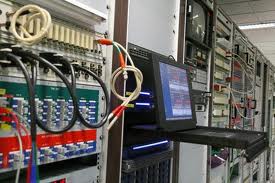As technology continues to evolve, the small businessman or woman should know how to most effectively run their business with the right technological products and services in place.
The simple truth is that a number of programs and processes can not only make things easier for the person who owns a business, but it can also help increase their revenue stream if implemented properly.
One such option is a T1 line, something that has been around for more than two decades, yet still remains a mystery to some business owners.
In the simplest terms, T1 lines (T is an abbreviation for trunk, 1 stands for a particular level within the trunk) offer reliable bandwith when it comes to accessing the Internet, using multiple telephone lines, or data communications. Unlike high-speed cable, T1 lines are focused business Internet connections that are not shared by a number of companies.
For the business owner who runs an operation where multiple lines of communication are needed such as a customer service center, T1 lines (offering 24/7/365 service) can be very beneficial to performing a multitude of operations. They help the company dealing with large call volumes, proving less expensive and more efficient than those that have regular old phone service in place. Given the fact that numerous services can be mixed together on a single T1 line, business owners can actually end up saving money over time.
When shopping for a T1 line for oneâs small business, take note that an integrated T1 line is one of the top selling T1 solutions, due primarily to the fact that it offers local phone service, long distance, and bandwith all on a lone connection and one bill. Business owners also have the option of bonded T1 lines, consisting of up to four 1.5 Mbps T1 circuits that in reality act as a lone circuit, providing speeds up to 12 Mpbs.
As you shop for a T1 line, consider:
1. Location – This is the major factor as to what you pay for a T1 or greater bandwidth line. The further distance your operation is from the carrier, the more you pay. Places further away from sizable metropolitan areas oftentimes pay more;
2. Hardware – Look at the expense for hardware that includes routers, PBX boxes, switches, and any installation fees among other items
3. Contract – The terms (length) of the contract can have a big impact on what you will end up paying. Â Typically, it will cost more on a per month basis for a one-year contract than you would for say a three-year deal;
While newer technologies have hit the market over the years, decreases in price for T1 lines, along with the reliability of such circuits, has permitted the volume of T1 lines in use nationwide to keep growing at a solid rate.
For those small business owners who need the Internet, telecommunications and data connectivity now and going forward, T1 lines are definitely something to dial into.
Photo credit: ehow.com
With 23 years of experience as a writer, Dave Thomas covers a wide array of small business topics.
